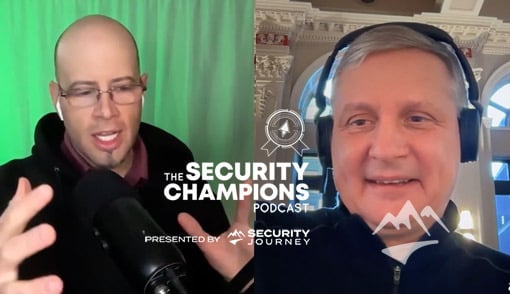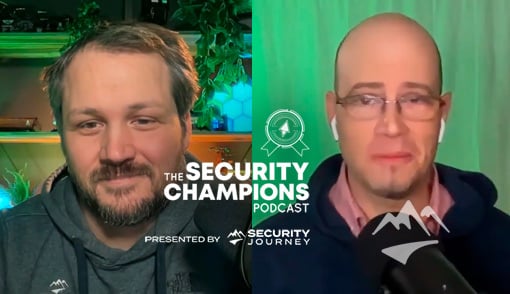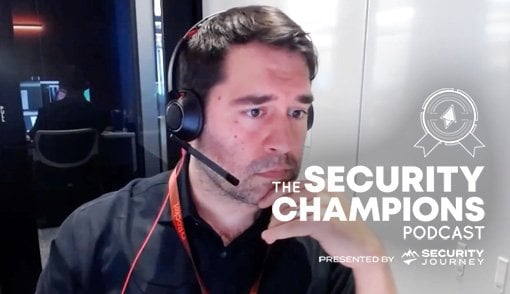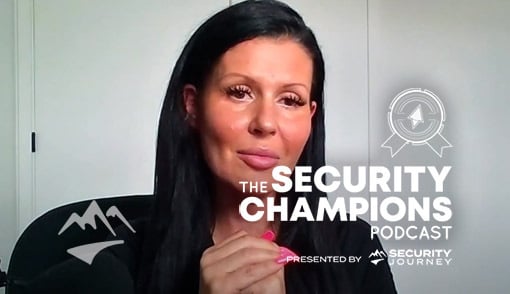Published on
In the latest episode of the Security Champions Podcast, I had the pleasure of speaking with Eva Benn about a topic that hits at the heart of the work many of us are trying to do: reshaping the culture of cybersecurity to be more inclusive, authentic, and human-centered.
Eva brought her full self to this conversation, and one of the strongest themes that emerged was the belief that everyone can become a security person. She said it with confidence and believes strongly that we can do it. I’ll admit, I was a bit hesitant. In my experience, there’s a natural spectrum. Some people are just wired for and naturally interested in geeking out about security while others really just don’t engage with it unless they absolutely have to. But Eva's perspective challenged me, and this is something I’ve been sitting with since our talk.
What if we could build a culture where security wasn't something reserved for a select few, but something everyone could see themselves in? What if people felt empowered to bring their personal strengths, their unique creativity and thinking, to form their own security identity, without feeling like they had to fit the stereotypical mold of a “cybersecurity professional”?
That idea connects with another part of our discussion that resonated deeply: content creation and building community. Eva and I spoke about the power of putting yourself out there, even if it means losing some people along the way. Not everyone will get you. And that’s okay. The goal isn’t to be everything to everyone, it’s to show up as yourself so that the right people, the ones who connect with your message and your energy, can find you.
When we speak authentically and create space for others to do the same, we help people find their place in the industry, and remind them that everyone can make an impact.
We also dug into a critical aspect of making security education stick: the emotional foundation. Eva described it as preparing “fertile soil.” If we want training to take root, we need to connect to the learner’s emotion. That means understanding the human side of security: the fears, the motivations, the desires to contribute and belong. If we ignore that and just throw facts at people, nothing will grow. But if we create a psychologically safe space, make it fun, and tie it to purpose, that’s when transformation is more likely to happen.
Finally, one of the most important takeaways from this conversation is that everyone has something to give in cybersecurity. Whether you’re new to the field, pivoting from another career, or battling a heavy dose of imposter syndrome, your perspective matters. Your story matters. And our collective strength as a security community depends on embracing those differences, not smoothing them out.
This episode is a reminder that practicing security doesn’t start with a fancy title or a certification. It’s an identity that can be created, formed, and refined by embracing our own unique approach to it.
Big thanks to Eva for this incredible conversation. I hope you check it out and walk away inspired to embrace and define your own security identity, on your terms.
Dustin Lehr
I started my career as a software engineer and application architect, spending over a decade writing code before transitioning into cybersecurity leadership. Today, I specialize in building security programs that drive real behavioral change—leveraging motivation, psychology, and gamification to create sustainable security cultures.

Recent posts by Dustin Lehr

Tapping Other Fields to Approach Security Differently
Reflections on my Security Champions Podcast episode featuring John Benninghoff

The Security Champions Podcast 2025: A Year-in-Review
Reflections on the latest Security Champions Podcast episode

Leading with the Carrot: Building Security Culture, Not Just Compliance
Reflections on my Security Champions Podcast episode featuring Mark McMillan


